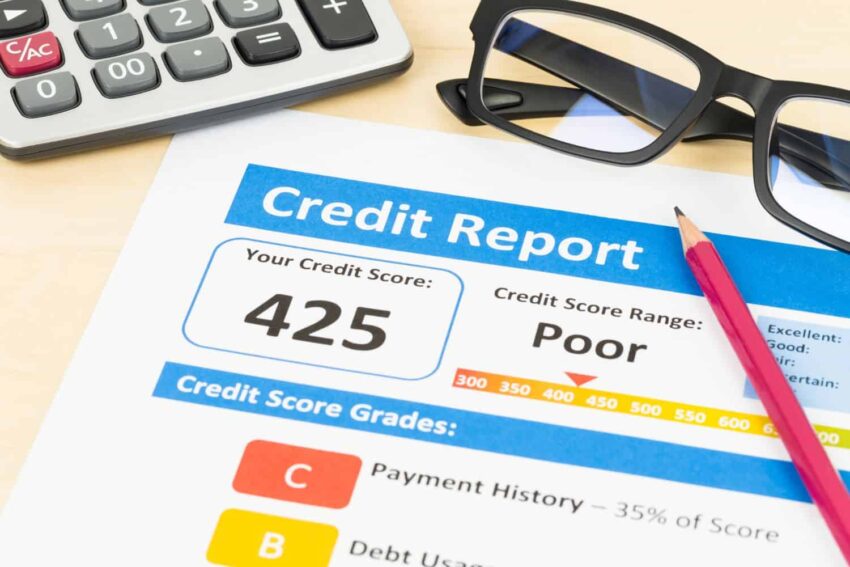
Credit providers are less likely to grant credit to someone with no credit history, as they cannot assess whether the person will be a reliable payer.
Debt review has helped many consumers to get their finances back on track, but consumers often complain that their complete credit history is deleted after they complete the process to pay off their debt, compelling the NCR to issue a guideline to correct this.
The National Credit Regulator (NCR) has now issued a new guideline to provide guidance to credit providers on how they must update consumers’ payment information at the credit bureaus after debt review.
The NCR says it became aware that some credit providers do not submit payment profile information of consumers who are under debt review to credit bureaus as required by the National Credit Act. This means that consumers who receive clearance certificates after completing the debt review process do not have any payment profile information recorded on their credit bureau reports.
Consumers who do not have payment profile information recorded on credit bureau reports find it difficult to be considered for new credit applications because credit providers do not have any payment profile information to conduct credit risk assessments on them to see if it would be risky to grant them credit.
The NCR states that these consumers are incorrectly classified as thin-file consumers by credit providers. A “thin file” refers to the credit report of someone with little or no credit history, which can make it difficult to get credit.
ALSO READ: Credit and the law: Here are the rights you must know about
Credit providers must give consumers this information when they get credit
However, section 69(2) of the National Credit Act states that credit providers must, when entering into or amending a credit agreement, other than a pawn transaction or an incidental credit agreement, report directly within the prescribed time to the national register or credit bureau within the prescribed time the following information:
- The credit provider’s name, principal business address and registration number
- the name and address of the consumer
- The consumer’s ID number or passport number if the consumer is not a South African citizen, or in the case of a company, its registration number
- The credit limit if the agreement is a credit facility and the expiry date of the agreement, if there is one
- If the agreement is a credit transaction or credit guarantee, the principal debt, the particulars of any previously existing credit agreement that was terminated or paid off as condition for the new agreement, the amount and schedule of each payment due under the agreement and the date when the consumer’s obligations will be fully satisfied if the agreement is fully complied with.
In addition, regulation 19(13) of the Act, read together with guidelines issued under this regulation, states that a credit provider must submit credit information to the credit bureaus in the manner and form the National Credit Regulator (NCR) prescribes through conditions of registration and any guidelines the NCR issues from time to time.
ALSO READ: Everything you need to know about credit bureaus
Credit providers must use this consumer credit information
Section 70(1)(a), read with section 70(2)(d), states that “consumer credit information” means information about:
- Someone’s credit history, including applications for credit, credit agreements the person is or was a party to, the pattern of payment or default under any of these agreements, debt re-arrangement in terms of the Act, enforcement actions regarding these credit agreements and the circumstances of termination of these agreements
- Someone’s financial history, including the person’s past and current income, assets and debts and other matters within the scope of that person’s financial means, prospects and obligations, as defined in section 78(3)
- Someone’s education, employment, career, professional or business history, including the circumstances of termination of any employment, career, professional or business relationship
- Someone’s identity, including the person’s name, date of birth, identity number, marital status and family relationships, past and current addresses and other contact details.
A registered credit bureau must retain any consumer credit information reported to it for the prescribed period, irrespective of whether that information reflects positively or negatively on the consumer.
ALSO READ: Debt Review: The good, the bad and the ugly
What credit providers must do when it receives a clearance certificate
According to section 71(5) of the Act, a credit bureau or the national credit register must, when it receives a copy of a clearance certificate, delete from its records:
- The fact that the consumer was subject to the relevant debt rearrangement order or agreement
- Any information about any default by the consumer that may have caused the debt rearrangement or was considered in making the debt rearrangement order or agreement
- Any record that a particular credit agreement was subject to the relevant debt rearrangement order or agreement.
The NCR points out that only this information must be removed from the credit bureau records when a clearance certificate is issued for a consumer:
- The fact that the consumer was subject to the relevant debt rearrangement order or agreement
- Any information about any default before the debt rearrangement is considered, before the debt review process starts
- Any record or information that a particular credit agreement was subject to debt review.
In addition, no payment profile information or history must be removed from the credit bureau records of a consumer, except as prescribed by the retention periods in terms of Regulation 17 of the Act.
This guideline is effective immediately.
